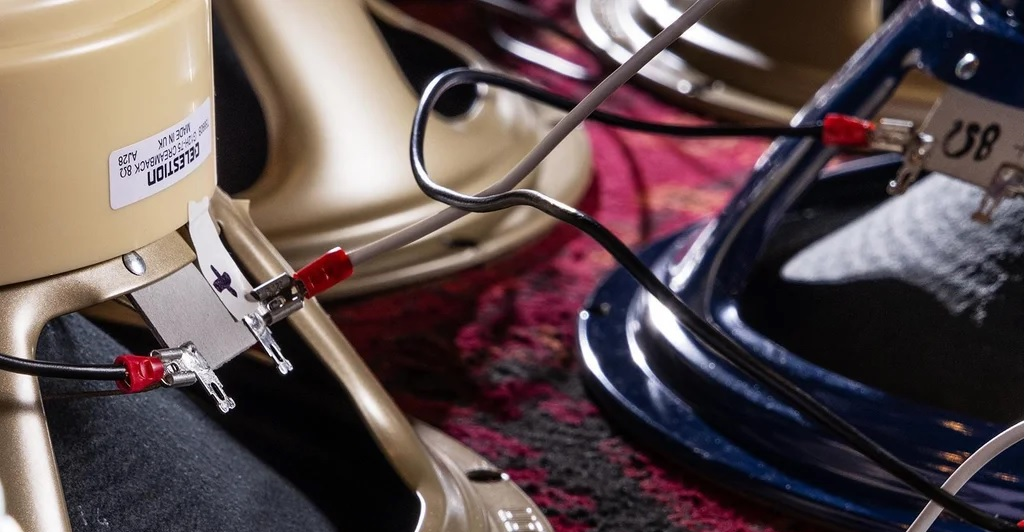
So you’ve built a beautiful cabinet and picked out some sweet speakers—now comes the wiring! Don’t overthink this part; it’s one of the easiest steps, but getting it right is crucial for killer tone and reliability.
The Best Wire Type: Stranded Copper
Forget solid core, shielded cable, or anything fancy. For internal wiring within your speaker cabinet, the undisputed champion is stranded copper wire.
-
-
- Why stranded? Unlike solid wire, stranded wire is flexible, which is important for moving speakers around and absorbing vibrations within the cab. It’s also less likely to break over time.
- Keep it pure! Use oxygen-free copper (OFC) if you can. While the tonal benefits are debated, OFC is simply a higher-quality wire that’s less prone to corrosion, offering better long-term reliability
-
The Right Gauge: 16 AWG is King
The gauge (or thickness) of the wire matters. Gauge is usually measured using the American Wire Gauge (AWG) system, where a lower number means a thicker wire.
- Go with 16 AWG: For the relatively short runs inside a typical guitar cabinet (usually a couple of metres or a few feet at most), 16-gauge speaker wire is the perfect choice. It’s thick enough to handle the current and low impedance (usually 4, 8, or 16 ohms) without any power loss, but it’s still flexible and easy to work with.
- The alternative: You could use 14 AWG, but it’s often overkill and harder to manage. Avoid anything thinner than 18 AWG, as it may not handle high-wattage amps well and could introduce unnecessary resistance.
In short: Grab some 16 AWG stranded OFC speaker wire, keep the lengths as short and direct as possible, and secure your connections with solid soldering or high-quality crimp connectors. You’ll be rocking that DIY tone in no time!

